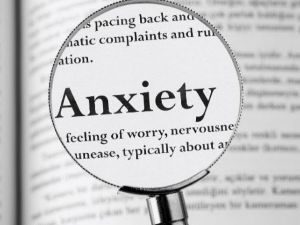Anxiety is very much part of our lives, though not all of our anxious tendencies result in serious disorders. With its prevalence, anxiety is often stigmatized, considered just an exaggerated reaction and often not taken seriously.
Mental health is of vital importance to our overall well-being, so let’s look at the details of anxiety, its symptoms and tips to help manage it. Knowing about this condition can help you to understand yourself and others better.
What is Anxiety?
There are times we feel anxious when engaging in situations that may be unfamiliar or uncomfortable for us. For instance, the fear of performing or speaking in public or when you’re about to take a major exam is anxiety-generating. Under these and similar circumstances, the feeling of anxiety helps us be more alert and motivates us to focus on the task at hand.
However, when the anxiety becomes overbearing, taking over our normal thoughts and functions-that’s when it becomes a problem.
Anxiety is composed of groups of mental disorders characterized by excessive fear and worry that it disrupts normal daily functions and activities.

Some types of anxiety disorders:
- Separation Anxiety Disorder, which is extreme anxiety of being separated from home, loved ones or an attachment figure.
- Panic disorder is the sudden feeling of severe dread or terror and you may experience chest pains, sweating or palpitations.
- Generalized Anxiety Disorder is uncontrollable worry and expectations of bad results for no reason and can be experienced in almost any situation.
- Specific phobias, which is an enduring fear of a specific object like animals or something inanimate like blood or abstract like heights.
Symptoms
Anxiety comes in different forms, but its symptoms can include:
- Urges of avoiding dealing with or doing certain things that provokes the fear, worry or terror
- Feeling nervous and tense when exposed to triggering situations
- Difficulty in focusing on other things aside from your worries
- Complications with sleep
- Gastrointestinal or stomach problems
- Physical symptoms like sweating, trembling, palpitations, hyperventilation, and tiredness
Tips
Don’t let anxiety win! Here are some things to help you cope and manage with feelings of anxiety in order to feel more normal and live a more easeful life.
-
Understanding the problem
The key to better management of the issue is knowing what triggers anxiety in order to find the best treatment and management for it.
-
Practice relaxation methods
Simple relaxation methods like breathing techniques can do a lot for you by helping you divert your attention from the problem.Try a technique I often do with patients in-office: slowly inhale for a count of 4, hold your breathe for 4 seconds, then exhale slowly for 4 seconds. Do this for several rounds until you feel like you’re under more control and ease. Navy SEALS and others under extreme pressure have implemented this breathing technique to help them manage dangerous, scary and critical situations. Give it a try!
-
Exercise, sleep and eat well
Keeping a healthy body prevents stress from adding to your anxiety, allowing you to cope better and faster. Making sure you’re eating well and taking the right supplements and nutritionals to support your body and brain is very helpful in properly managing anxiety disorders. Contact us with questions about how you can better support your body.
(For the patients we see, most have benefited by taking one or more of the following nutritional products, which have helped manage their stress, anxiety and overall mood. See your medical provider for specific recommendations based on your unique needs.)
- B Complex helps balance the brain and deal with the ever-changing demands of daily life. (This link goes to one of our favorite lines, best for highest absorption by the body- which means, you get more and feel better. It’s easy on the digestion.)
- A good multi-vitamin supports the body in all conditions
- Stress management product, I like a supplement called Bliss, which helps to balance the mood and how the body handles stressful and anxiety-provoking events.
- Sleep. Sleep is hugely important for our brains and body to repair themselves at night. There’s many natural sleep aids available, this sleep-inducing drink (powder that you mix with water and drink 1 hour before bedtime) is one you can get without a consultation or prescription. Pricey but effective.
-
Talk to a mental health professional
When things go extremely badly, talking to someone who knows anxiety disorders can help in dealing with the problem and finding the best outcome. A licensed mental health professional is a great resource for those suffering with anxiety.
Anxiety disorders can be successfully managed with Acupuncture, herbal medicine, various medications and talk therapies. It is imperative to understand that anxiety, just like any other mental disorder, can be treated, even in severe cases.
Is today the right time for you to change your life? What might it look like for you to have anxiety under control? How different could your life be?
If you’re struggling with an anxiety disorder, we are here to help you understand the condition and provide the tools, techniques, resources and therapies to support you.
Learn more : About Us | Blog | Testimonials
